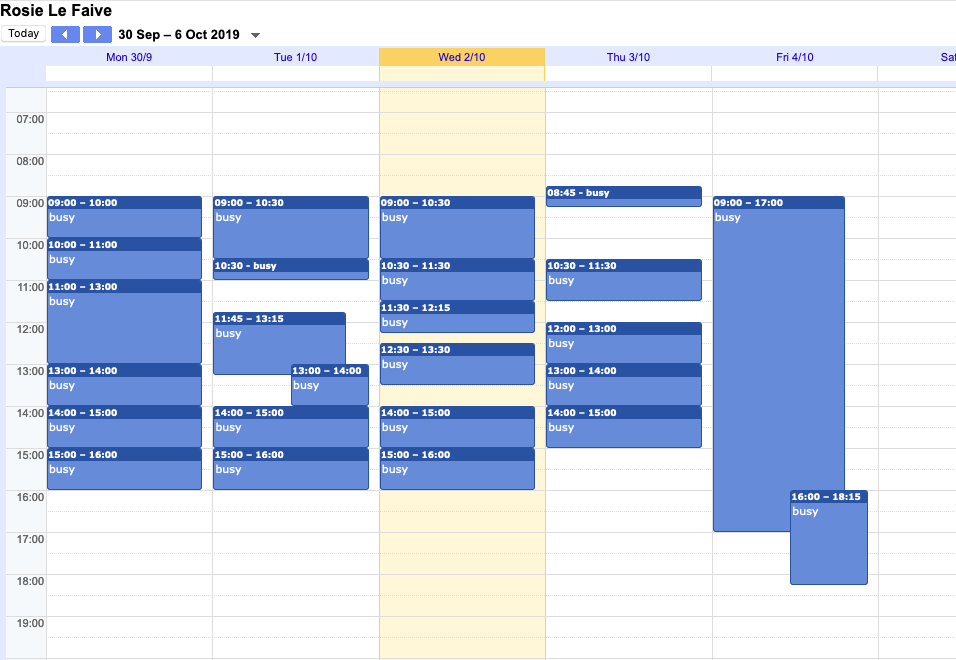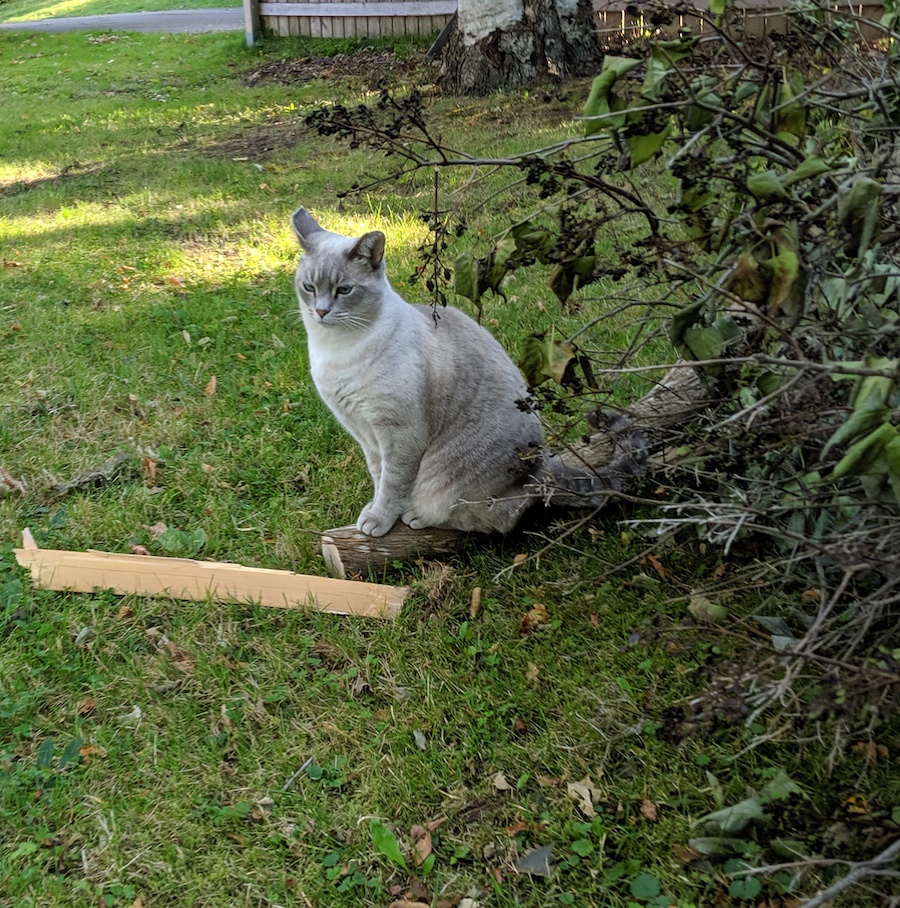Like others coping with adult ADHD (see also Leigh’s post and this article) I find it exceptionally hard to manage time. I’ve tried so many systems, and I have piles of lists and bullet journals that I’ve abandoned. But one thing I keep coming back to is “the pomodoro method“.
Super simply, it goes like this: Set a time for 25 minutes. During which, do the thing. When the timer dings, stop.
There’s a super-system where you take 5-minute breaks between repeated sessions and a longer break after four or something, but who has that kind of time?

I think there are a few reasons that this works for me. One – at any given time, I’m usually stressed about 3-7 large-scale items that need deep, creative attention, which could each eat up as much time as I can give them, all must get done but not super urgently, and are most likely to get pushed to the side in favour of answering random emails. I get stuck, because no matter what I choose, I can argue that I’m making the wrong choice. But 20 minutes won’t hurt anyone, so I can take that time and focus on something that I want to give my full attention to, stress-free.
Second – It’s long enough that I can actually focus and do the thing. And it seems to be about the right time where after the 25 minutes, a break actually helps because it lets me step back right before I get stuck down a rabbit hole, see the big picture, and often reframe my goals.
Third – and this is the most important, it does not require constant compliance. So many systems promise to organize your life – but you have to stick with them religiously. Some day I’ll write about my relationship with my bullet journal (and how it became abusive). I could go into how productivity methods echo Foucauldian disciplinary penal structures, with regimes that require you to always be producing! Highly structured! Schedules! But the pomodoro doesn’t care. You can come back to the pomodoro whenever you want, without punishment. It’s a good friend like that. It’s also indifferent to whether you actually “finished the thing” or how many things got finished. Who does the cult of productivity really serve? (Our capitalist masters is who.) And regardless, it gives a reasonably attainable feeling of accomplishment and satisfaction.
Speaking of capitalism (and hah I am in no way sponsored by this but)… I want to voice my appreciation for OXO Good Grips and their accessible design. I have a few of their kitchen gadgets, and they’re easy on the hands. I’m not sure if their “Triple Timer” was intended for physical ease of use, or for the time-blind like me, but having three pre-set countdowns, plus a desk clock is a huge help. Sometimes it’s worth having a dedicated device, because I can never find the beeping tab among my 48 open, and I can’t start a timer on my phone without answering 3 different messages and checking social apps.
